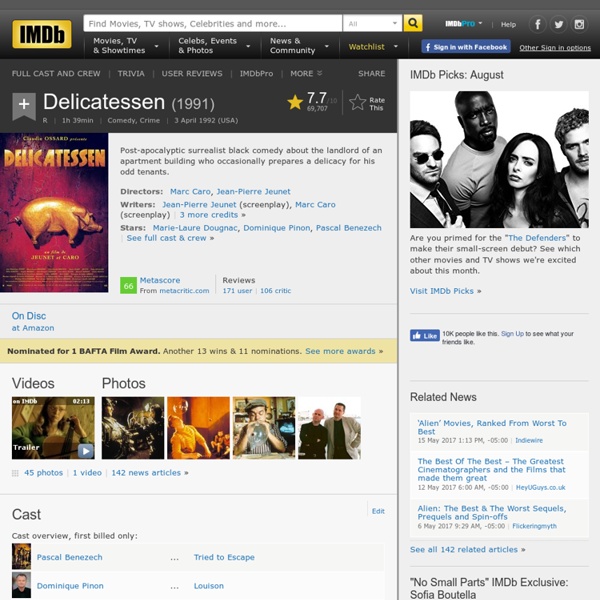



L’AGENCE, avec Matt Damon et Emily Blunt : nouveau poster L’AGENCE, avec Matt Damon et Emily Blunt : nouveau poster Après des affiches dignes d’Hitchcock, voici le nouveau poster de L’AGENCE. Basé sur une nouvelle de Philip K. Dick, L’AGENCE déroule l’histoire de David Norris, requin de la politique souffrant d’une tendance certaine à autodétruire ses chances électorales. L’AGENCE, dirigé par George Nolfi (scénariste de LA VENGEANCE DANS LA PEAU), sortira le 23 mars prochain en France. Sa nouvelle affiche, révélée par Universal, n’est pas pour le marché hexagonal, mais elle est suffisamment jolie pour que nous la partagions.
Ed Wood (1994 Raras Fotos de Star Wars corcholat Suscríbete Raras Fotos de Star Wars — Publicado por fael hace 4 años, 3 meses Fuentes: damncoolpics.blogspot.comvanityfair.comnews.ycombinator.com Suscríbete gratis a la lista de correo Relacionados corcholat 2007 - 2014corcholat [at] gmail [dot] com→ therror.com A Few Good Men (1992 Family - The Marx Brothers On the image above please click on the brother you would like more information about or scroll down to get general information on the Marx family (image only clickable when your browser supports Client-side maps.) This picture shows from left to right: Zeppo, Groucho, Chico, Gummo and Harpo. Chronological history of the Marx Brothers The mother of the Marx Brothers came from Germany. The family lived in New York. Simon's and Minnie's first child Manfred born in 1885, died in infancy before the age of three. Minnie helped her brother Al Sheen getting into show business and decided early that her children should follow him. The first performance in the Marx Brothers style as we know it was Fun in Hi Skule in 1912. What followed was The Cocoanuts a Broadway show which became their first film. From 1929 on they were mainly active in filming. This site uses material originally created by Frank Bland for his website Why A Duck?.
Jumanji (1995 Cary Grant Cary Grant (born Archibald Alexander Leach; January 18, 1904 – November 29, 1986) was an English stage and Hollywood film actor who became an American citizen in 1942. Known for his transatlantic accent, debonair demeanor and "dashing good looks", Grant is considered one of classic Hollywood's definitive leading men.[4] Nominated twice for the Academy Award for Best Actor (Penny Serenade and None But the Lonely Heart) and five times for a Golden Globe Award for Best Actor, Grant was continually passed over. In 1970, he was presented an Honorary Oscar at the 42nd Academy Awards by Frank Sinatra "for his unique mastery of the art of screen acting with the respect and affection of his colleagues".[5][6] Early life and career[edit] Leach was expelled from the Fairfield Grammar School in Bristol in 1918. Leach became a naturalized United States citizen on June 26, 1942, at which time he also legally changed his name from "Archibald Alexander Leach" to "Cary Grant".[13] Hollywood stardom[edit]
Eyes Wide Shut (1999 Die Wiege der Sonne (1993 Falling Down - Ein ganz normaler Tag (1993 Pi - Der Film (1998 Besser geht's nicht (1997 Zeit des Erwachens (1990